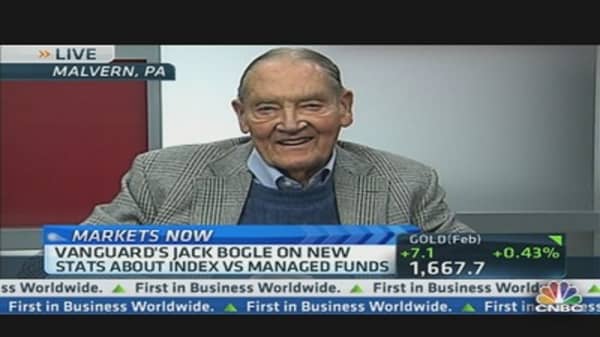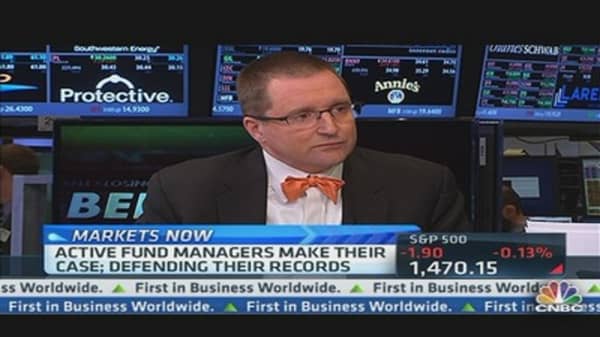Mutual funds that are actively managed tend to lag the broader stock market because they have grown too large and have too many costs, Jack Bogle, co-founder of Vanguard and father of the index fund, told CNBC's "Closing Bell"on Monday.
"What we're seeing now is the real triumph of indexing," Bogle said. Over the past six years about $650 billion flowed into index funds with most going into the broad stock market and bond market funds, he said.





